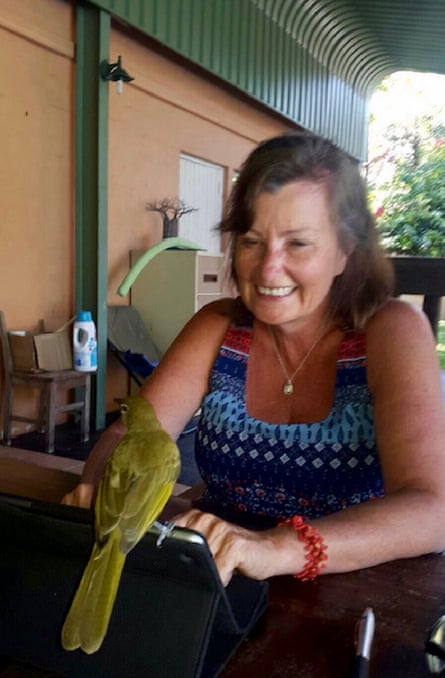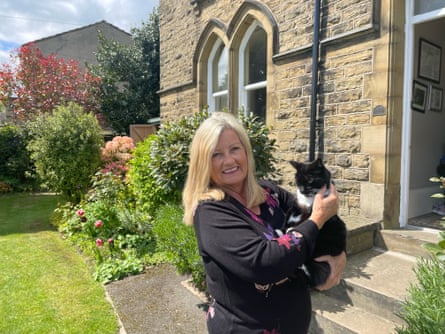
When Bernadine Swale’s marriage ended after 36 years, when she was 57, her first instinct – once she had recovered from the shock – was that she couldn’t manage alone. “The standard, cookie-cutter way you have to be in your 60s is man and woman, and you travel together,” she says. It took her a few years to realise: “Actually, no.”
Now 68, Swale, a retired pharmacist, travels the world as a pet-sitter. Last year, she spent only 23 nights in her own bed, in a loft that looks out over downtown Denver. Pet-sitting stops have included London, New York, Athens, Botswana, Tokyo and New Zealand. “I absolutely love my life,” she says. “I have the best retirement there ever was.”
Swale had always wanted to travel. She had grown up in Maun, Botswana, between the Okavango delta and the Kalahari desert, where her father was a doctor. The family moved to England when she was 10. She went to university in Yorkshire, where she met her future husband. After they married and had three children, they moved to the US for his work. “I was in my mid-30s and I’d already lived in three continents,” she says.
“Life gets busy just raising your kids as best you can, giving them a stable base. You put all those travel wishes on the back burner. They are still there, but you bury them with everyday life, because that’s the best thing for your family.”
When Swale was first divorced, “I couldn’t function; I couldn’t even talk”. But by the time she was 63, having had another serious relationship, she had reached a different understanding of herself: “I don’t need a man. That’s not what brings me the most joy in life.”
She had continued to work and had kept the family home. “But it was just me rattling around in it. And work was increasingly pressured. I suddenly thought: ‘Why am I doing this?’ Then I had a brilliant plan.”
The spousal maintenance she received was roughly the same as the social security she would receive when she retired. “So I thought: I’ll rent the house out for a year, do some pet-sitting and see if I can live on the alimony. And if I can, I don’t ever have to go back to work. I’m good from now on.”
The first pet-sitting job was half an hour from home. “I loved animals. But I thought: you don’t know whose house you’re going into, what reception you’ll get, if the dog will bite you or the cat run away … I sat in the car for about 10 minutes, plucking up the courage to ring the doorbell.”
But the sit was fine. Although the money was tight – there is no fee for pet-sitting, only free board – she “made it work”.
“I thought: ‘I’m going all in now. I’m going all in.’ I sold the house. I got rid of everything.” She bought the loft because it was a “golden house” for listing on Airbnb when she wasn’t there.
Now, Swale doesn’t stop to think. Some people want to meet her. Some leave a key under the mat. She has cycled around Sanibel Island in Florida with a terrier in her basket and taken a miniature schnauzer out for dinner in New Zealand. “Once you get over the initial fear, the freedom as a single person is fantastic.”

In Botswana, some strange beasts came through the house, including a baby rhinoceros. On a recent pet-sit there, she visited the remains of her old home. Behind the house, by the river, her childhood came flooding back: “Getting stuck in the mud … tearing up the massive leaves of banana plants to make a hula skirt.”
Her next stop is Florida, where she will look after a cat and three geckos. “So long as my health holds out, so long as I get joy out of it, I will keep doing it.”
Doesn’t she miss having a fixed home? “The world is my home,” she says. “You’re living in their home, you’re walking in their neighbourhood, you have their pets, chat to their neighbours; you are living as if you live there. It’s like borrowing somebody else’s life for a minute. And I learn something from every sit I do.”


